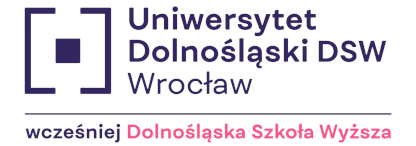Zaproszenie na wykład
“The Fall Seminar” with Professor Fergal Finnegan
Lecturer at Department of Adult and Community Education
Maynooth University
University of Lower Silesia
December 3-4, 2020
online seminar
Persistent inequalities and the pulse of freedom: Reflecting on the power and the limits of higher education
Day 1 - Lecture
December 3, 14.30
open to the public
join the meeting
December 4, 14.30
registration - doctoral students only
The aim of the session is to spark a dialogue with partcipants about the role of higher education in achieving greater equality in society . In particular I want to explore higher education in relation to social class inequalities I will seek to address these questions from an egalitarian (Baker et al, 2009; Freire, 1972) and a critical realist perspective (BarneI, 2013; Bourdieu, 2000; Bhaskar, 1979).
I will begin by discussing in broad terms the type of research I have been doing over the past twelve years and outline theoretical and methodological premises of the research and how this relates to the Irish context. As part of this I will make a case for the importance for a ‘biographical’ approach to interviewing (Alheit, 2000; Merrill & West, 2009) and making the voices of students and graduates central to how we understand education.
Drawing on critical policy studies, educational sociology and a decade of empirical research on students and graduates experience in higher education and in the labour market (Finnegan, 2016, 2017; Fleming et al, 2017; O’Neill & Finnegan, 2019) I then want to examine two basic, and to my mind, vital questions.
The first question is a largely empirical matter – what impact has higher education had on class inequalities? Class inequality has been an enduring concern of policymakers and researchers in Ireland. I will argue that forty years of rapid expansion of Irish higher education and twenty years of formal access policies aimed at widening participation has certainly changed institutions and individuals’ lives but not in the way that is typically imagined in policy and research. In fact, despite the hopes of human capital theorists and proponents of the Knowledge Based Economy we can discern persistent patterns of inequality and new forms of class inequality inside and outside higher education. Yet a great deal of policy and academic research remains yoked to a deep and completely unrealistic faith in education to address inequality . Against this I will argue for a holistic and critical analysis of the limits of education as it is currently organised to address inequality.
The second question we will explore is what can and should higher education in a deeply unequal, and also fragile and interdependent world? This is less straightforward to answer definitively but based on my research and wider adult education research there are clues and signs that are worth reflecting upon. I will suggest that if we listen carefully to what students and graduates say and examine what we know from educational theory and experimentation we can identify modes of learning that HE should be actively seeking to support. Especially valuable is a type of transformative learning based on fostering of reflexive agency and autonomy which operates on a variety of scales (Finnegan, 2010, 2016, 2019), notably the biographical, the institutional and the social. I will then conclude with a number of synthetic propositions about equality and higher education.
In advance of our meeting I will ask you to write something brief about the sort of theories and methodologies you are using and the puzzles and questions that you are grappling with in research so I can shape my presentation with your needs and questions in mind.
Online communication can be fairly static and tiring so I would also ask you to do a little preparation which relates to my research themes so that we can make sure the dialogue is open and fluid as the format allows. I do not want you to write anything formal but it would be very helpful if you could take a few moments before we meet and come ready to articulate how you view equality and education, what you know about widening participation in Polish higher education and how you view social class inequality in Poland. I would also appreciate a great deal if you could identify where and when you have had especially rich and significant educational or learning experiences in your life.
 Jesteś w dobrym miejscu! Zmieniliśmy nazwę na Uniwersytet Dolnośląski DSW!
Jesteś w dobrym miejscu! Zmieniliśmy nazwę na Uniwersytet Dolnośląski DSW! 
